There’s no question EVs offer a number of advantages, including low energy costs and the ability to plug in at home. But what about when you need to charge up on the road? The good news is that there are more public chargers being added every day. The downside: you might be in for a long wait when you plug in, depending on what EV you’re driving. Automakers are upgrading their battery vehicles to improve charging speeds and here’s a look at the models that will add miles the fastest – as well as the slowest.
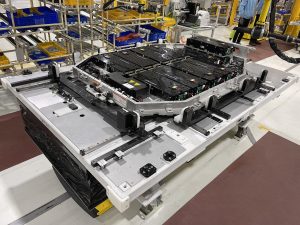
The industry is racing to develop new battery technology that will not only offer longer range but faster charging speeds.
A small Israeli start-up, StoreDot, claims to have developed a new type of battery that can charge up nearly as fast as you can fill the gas tank. Several start-ups promise similar speeds with the solid-state batteries they’re developing. The problem is that no one is sure when these next-generation battery breakthroughs will reach market.
Even so, EV manufacturers have made a number of improvements that are already speeding up charging times. For one thing, they’re upgrading their onboard electrical “architectures” to operate at higher voltages than early 400-volt systems. The Hyundai Ioniq 6, for example, runs at 800 volts and the upcoming Lucid Gravity will push to 900 volts.
Speeding things up
That’s particularly useful when you need to plug your EV into a high-speed public charger. And there are more and more of those going into use every week. A consortium of automakers, last month launched the new Ionna network that eventually will operate thousands of chargers, many of them operating at power levels of up to 350 kilowatts. And that will let some models, like the Ioniq 6 and Audi E-Tron GT, go from a 10% state-of-charge to 80% in as little as 20 to 30 minutes.

There are more and more public chargers going in every week. The newly opened Ionna network plans to set up 30,000 chargers.
A new study by Consumer Reports looked at the charging times claimed by manufacturers and found that a growing number of battery-electric vehicles can deliver what, in EV terms, are lightning-fast charging times.
And it’s not unusual to see older models get upgraded. The original version of the Model S could add a sluggish 6 miles of additional range per minute connected to a Tesla Supercharger. It’s now charging up at twice that speed.
The fastest models are now adding at least 10 miles per minutes, some reaching a speed of 15 miles. That means going from a 10-80% charge-up in as little as 15-20 minutes depending upon the size of the vehicle’s battery pack.
The fastest-charging EVs using public quick chargers
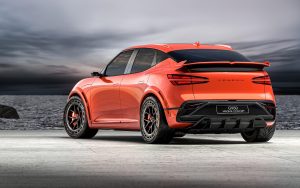
While Tesla has four models on the fastest public charging list, the Hyundai Motor Group has 6, including the Genesis GV60.
According to Consumer Reports’ analysis, 15 current EVs are delivering a minimum 10 miles per minute of charging speeds using public DC quick chargers. And – based on preliminary information looked at by Headlight.News — several others are expected to be added to the list soon, including the Porsche Macan EV, the Hyundai EV9, the Lucid Gravity and the GMC Sierra EV. Here are the fastest ones available now:
- Audi E-Tron GT
- Chevrolet Silverado EV
- Genesis Electrified GV70
- Genesis Electrified G80
- Genesis GV60
- GMC Sierra EV
- Hyundai Ioniq 5
- Hyundai Ioniq 6
- Kia EV6
- Lucid Air
- Porsche Taycan
- Tesla Model 3
- Tesla Model S
- Tesla Model x
- Tesla Model Y
More EV News
- What Will Trump’s Second Term Mean for EVs?
- Auto Industry Was Central to Presidential Race
- Politics Becoming Less of a Factor in the EV Market
The fastest-charging EV using a home charger
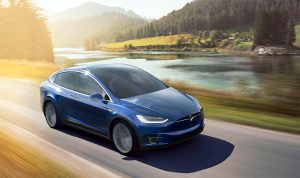
The Tesla Model S charging system got upgraded and is now one of the quickest whether using public DC systems or home chargers.
One of the benefits of owning an EV is the ability to plug in at home or office. While most battery vehicles can use 120-volt outlets that’s largely impractical. That’s why more and more owners are installing Level 2 chargers operating at 240 volts. How much power they can deliver depends upon several factors, including a home’s wiring, and can deliver from 32 up to 80 amps. These EVs pack on at least 30 miles per hour using a 40-amp charger.
- Fiat 500e
- Hyundai Kona Electric
- Kia EV6
- Kia Niro Electric
- Lucid Air
- Tesla Model 3
- Tesla Model S
- Tesla Model Y
The slowest-charging EVs using public chargers
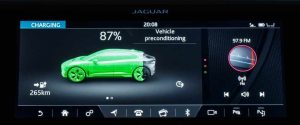
An onboard display shows the progress of a Jaguar I-Pace charging up. It’s one of the slowest models on the market using a public DC charger.
Charging speeds can vary widely, and it’s not always the vehicle’s fault. While the newest public chargers deliver 350 kW of DC current, some older ones muster a mere 50 kW. But on an apples-to-apple scale, there are the slowest EVs when it comes to charging speeds, delivering less than 5 miles more range per minute.
- Fiat 500e
- Jaguar I-Pace
- Kia Niro Electric
- Mercedes-Benz EQB
- Nissan Leaf
- Subaru Solterra
- Toyota bZ4X
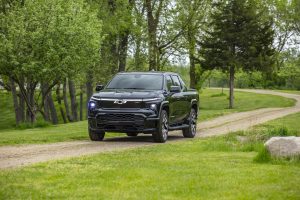
Surprisingly, the Chevrolet Silverado EV is one of the fastest-charging models using a public DC system – but one of the slowest plugged in to a home Level 2 charger.
The slowest-charging EVs using home chargers
Ditto for EVs plugged into home chargers. If the vehicle’s electrical architecture can handle it, more amps are better. But, whatever Level 2 charger they’re plugged into, these are the slowest models, typically adding less than 20 miles range per hour.
- Chevrolet Silverado EV*
- Ford F-150 Lightning*
- GMC Sierra EV*
- Nissan Ariya
- Subaru Solterra
- Toyota bZ4X
Note that the Silverado and Lightning charge much more quickly using 80-amp systems.

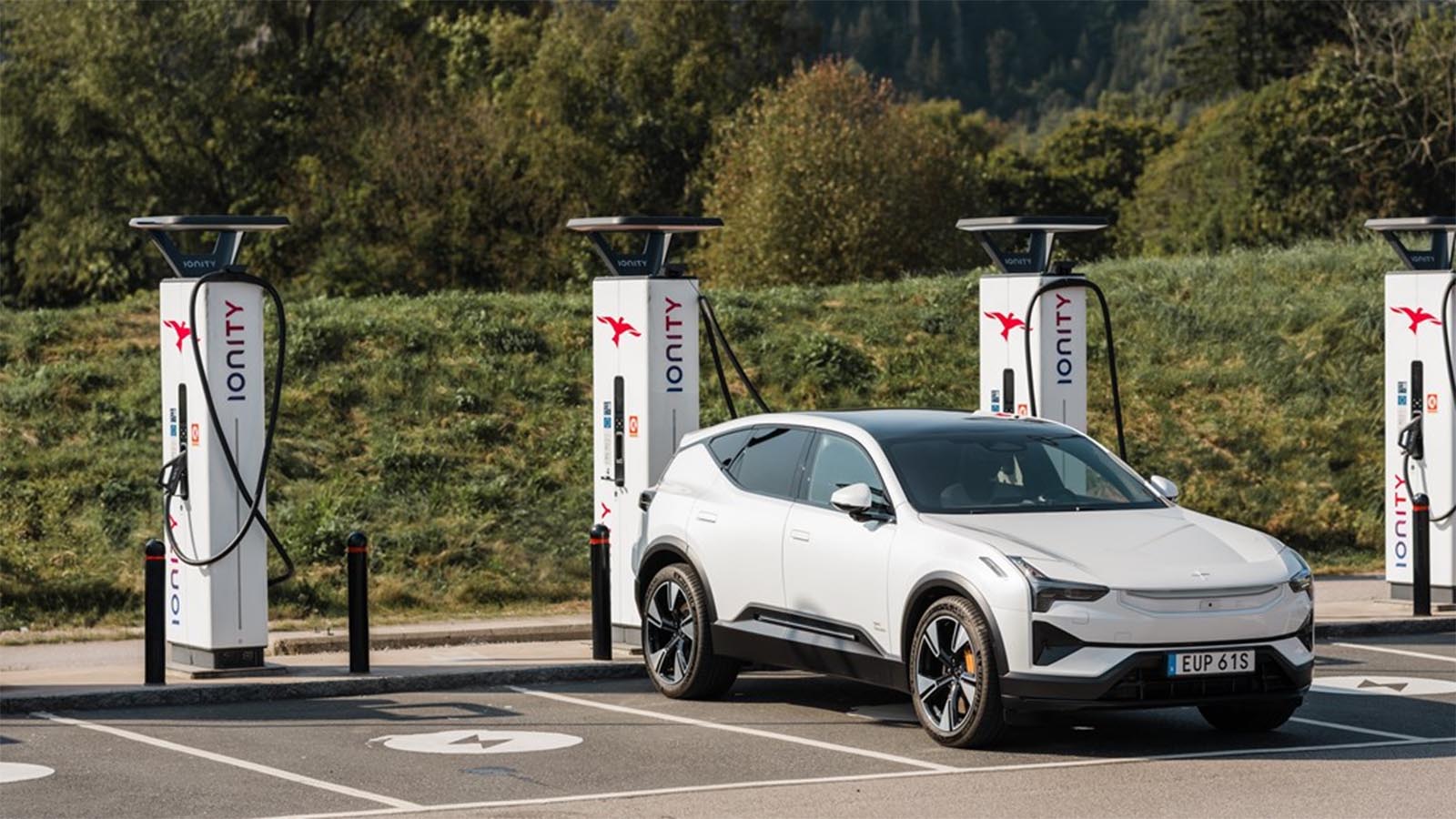
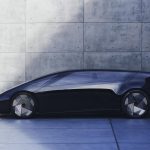
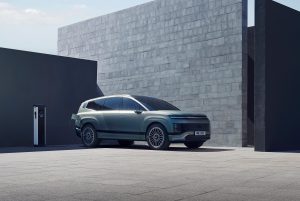
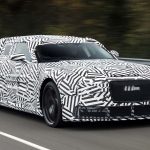


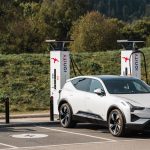
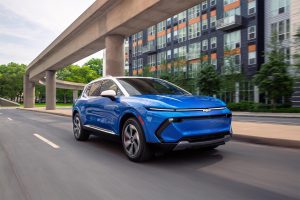
0 Comments